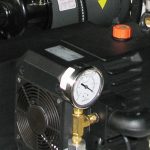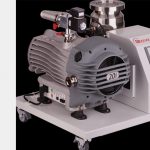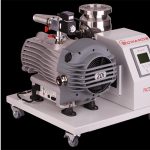Conveyor belt life can often be unfortunately shortened by something as simple as a failure to keep the belt clean — and while the people who manufacture the belts are profiting from your loss, it can really hit your bottom line hard. Not only do you have to buy and install a new belt, but your entire process is halted while that happens, costing you days of downtime in addition to the literal cost of the belt.
There are a few different problems that can happen when you don’t maintain your belts. First, small particles can attach themselves to the inside of the belt, getting crushed into it as it passes the pulleys. This causes the belt to get stretched every time that thicker area passes over the pulleys, eventually causing the belt to slip or split at the splice.
Second, larger sharper particles can get wedged into the belt and then catch on an impact saddle or other piece of machinery and begin making a long, continuous scratch in the belt that will eventually cause the belt to split lengthwise.
Finally, particles can get into the pulley mechanism itself and build up, slowly increasing friction and either heating up the pulley or slowing it down — either one of which can result in long-term problems.
Fortunately, all you need is a bit of basic maintenance and a decent conveyor belt cleaner setup to keep your belts lasting for their full lifetimes.
- First, use a air compressor and blow off the inside edge of the belt a few times a day. It takes only a minute if you have everything set up and in place. Alternately, use a plough scraper or, if you have a grooved belt, a belt brush set up along the inside surface of the belt.
- Suffice it to say, the outside of the belt deserves the same or better care than the inside; getting the appropriate kind of cleaner set up for the outside surface is critical.
- Denatured alcohol is a good cleaner for most kinds of conveyor belt. Avoid solvents or harsh cleaners unless they’re specifically intended for your kind of belt: synthetic rubber, PVC, and polyurethane are common materials in conveyor belts and all of them react violently to different cleaners. Contact your belts’ manufacturer if you have any questions.























